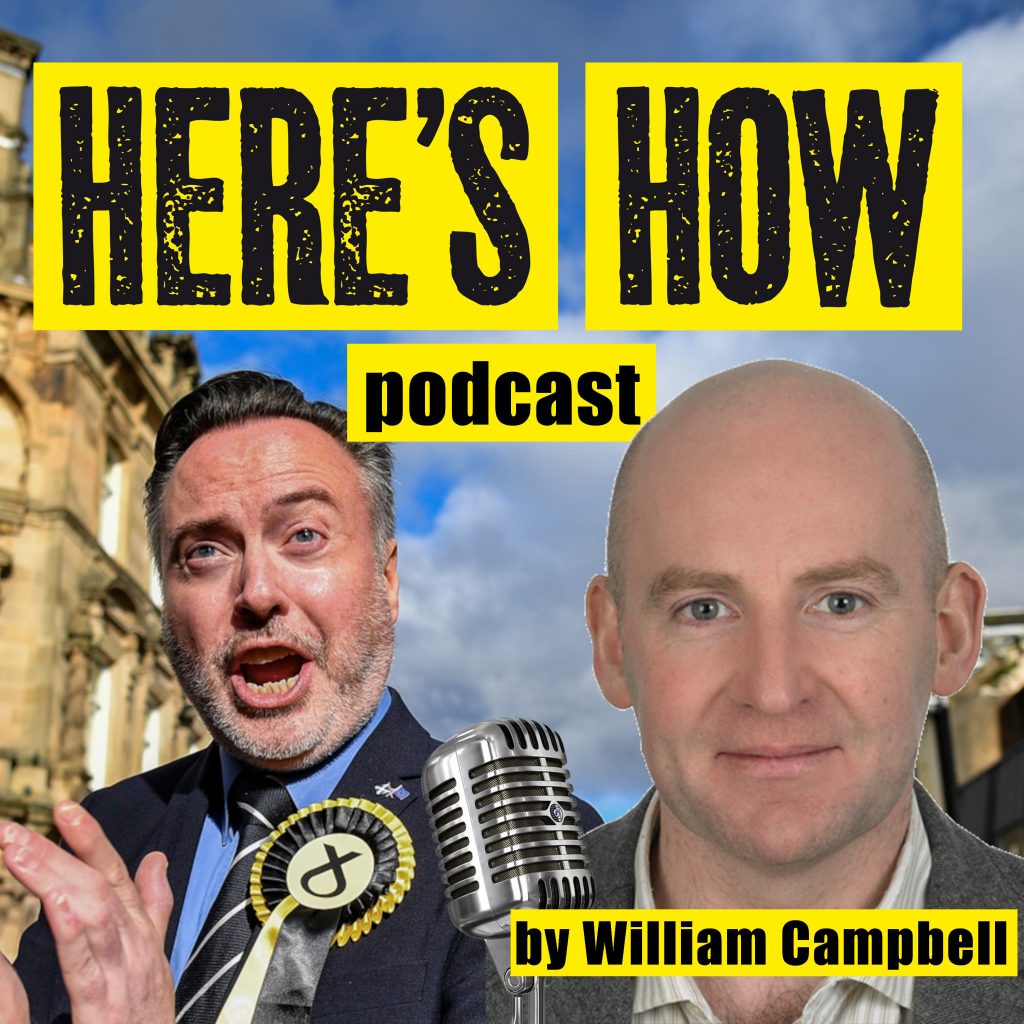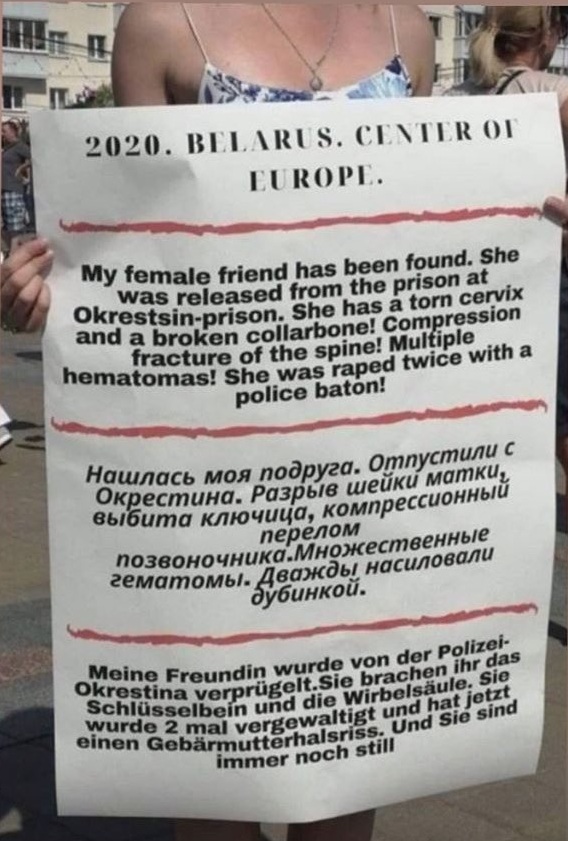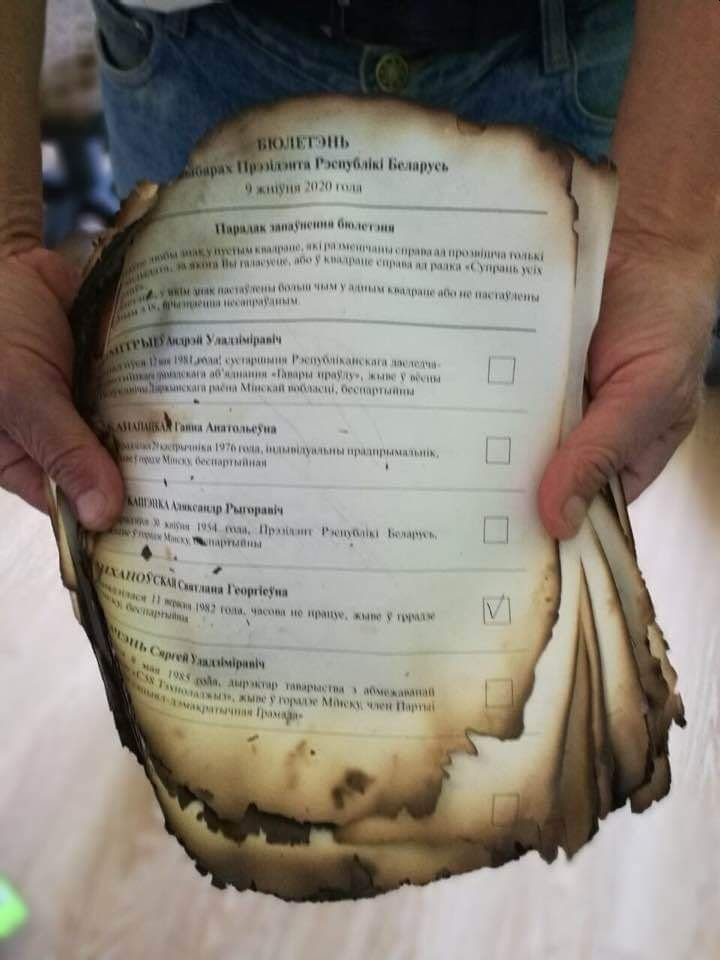Podcast: Play in new window
Subscribe: Apple Podcasts | RSS | More
Alyn Smith is the SNP member of the Westminster parliament for the Scottish constituency of Stirling. Since we spoke, two opinion polls have been published showing the pro-independence side stretching their lead, excluding undecideds, by up to 10 clear percentage points ahead, 55 to 45.

*****
You should be paying attention to Belarus. Well, that’s my opinion anyway, I think that it’s worth more attention than it’s getting.
A bit of background, Belarus, then named Belorussia, was one of the republics of the USSR, and the hint is in the name, it’s much closer, culturally and linguistically to Russia than most of the other Soviet republics were.
There is a Belorussian language, but its status is much like Irish in Ireland, or maybe more accurately like Welsh in Wales, it’s spoken by some people, mostly intellectual and counter-cultural type people in the cities, and in the villages in some areas they speak an odd mixture of it and Russian, but the Russian language is by far dominant, particularly in the government and workplaces.
Unlike some of the republics, Belarus never had any real existence before Soviet times; much of its territory is the land seized from Poland by the Soviet Union when Hitler and Stalin made the Molotov–Ribbentrop pact. They’ll hate me for saying this but apart from the alphabet, Belorussian is almost the same language as Polish, just that in catholic areas they learnt writing from the church so wrote in Latin script, and in orthodox areas they learnt writing from the church so wrote in Cyrillic script.
Fast forward to 1990, the Soviet Union fell apart, and Belorussia really didn’t want to leave, they were theoretically the only member of the Soviet Union after even the Russian Federation left. That was because there was no democratic revolution, as in much of the rest of eastern Europe, the local communist bosses stayed in charge, just with a bit less ideology and a lot more corruption.
This suited Putin very well indeed; Russia doesn’t really see Belarus as a separate country. You can travel between the two countries without an international passport and their economies are highly integrated, Belarus is a very agricultural country with some basic communist-style industries like making fertiliser and tractors. It’s about twice the area and population of Ireland. And it’s dirt poor, although there has been a flourishing of IT start-ups in the capital Minsk.
Belarus has become more important to Russia as a food source since the imposition of EU sanctions. They’ve developed their own production of things like Belarusian mozzarella and parmesan cheese, although the joke in Moscow was that it was really the Belarusian printing industry that boomed, since it was obvious that many of these products, at least initially, were illegally exported from the EU, with Belarusian labels stuck over the originals.
Alexander Lukashenko has been the unchallenged president since he created the office for himself in 1994. On 9 August it came time for him to perform a bit of dreary theatre of democracy, a sham election, not a performance that anyone inside or outside the country would find convincing.
His main opponent was human rights activist Sviatlana Tsikhanouskaya, and it says a lot about the state of human rights in Belarus that she sent her children into exile during the campaign for their safety; since the election she has also fled herself. Lukashenko duly announced that he had won with 80 per cent of the vote.
Most people expected that would be the end of the matter for another decade or so, but the people of Belarus had other ideas. Tsikhanouskaya summed up the situation in a video on her website.

The election fraud was brazen. Photos of stacks of singed ballot papers recovered from a furnace have circulated online. But the protests have been even more brazen, particularly for a country with such a terrible human rights record. Thousands were arrested and beaten, with some tales of truly awful torture emerging.

But the protests continued every day and are fast turning into a general strike. Lukashenko tried to take control of the situation, giving a speech to what he thought would be ultra-loyal factory workers. It didn’t go so well for him
What they are chanting there ‘уходи’, smoothly translates as ‘get out’.
Lukashenko then abruptly ends the speech with a curt ‘thank you’.
Since then the strikes have spread, this is the reception that workers in the Minsk metro got from crowds outside when they walked off the job.
They are chanting MTZ, that’s the name of the transport company. In addition, the staff of the state TV company walked off the job in protest at government censorship,
I’m seeing reports that local authorities in the city of Grodno, near the border with Poland have declared loyalty to the protest movement, released all prisoners and guaranteed the right of peaceful protest in the city.
Anyone who remembers the pictures of people dancing on top of the Berlin Wall in 1989 would be forgiven that Belarus is going to get its freedom, albeit belatedly.
Let me tell you, this does not end well.
The Orange Revolution, which kicked out a similarly corrupt government in Ukraine 15 years ago caused alarm and panic in Moscow. Putin is determined to leave the Kremlin horizontally, like most of his predecessors. Indeed, he is caught in the dictator trap. If he were to hand over power, at any age, the risk that he and his cronies would eventually be held responsible for his crimes is too great. He cannot allow himself to retire, much less be booted out of power.
But if one ex-Soviet dictator can be overthrown, then they all can, so he will do anything to prevent that. He invaded Ukraine and seized Crimea in response to the Orange Revolution. The thought of a democratic government even closer to Moscow, both physically and culturally will not be tolerated.
The BBC is reporting that Russians have been sent to staff the state TV abandoned by journalists supporting the demonstrations. Also unverified, I’m seeing reports that Moscow is starting an online information battle against the demonstrators, and has sent senior FSB agents and possibly riot police to Belarus.
Various social media accounts are sharing shaky footage of Russian military of one sort or another in convoys of troop carriers heading from St Petersburg and Moscow towards Minsk, with number plates removed and markings painted over. Beware of information warfare here. This could be real, but it could equally be Russians planting these images to try to intimidate the protesters.
So what’s going to happen? Well I can tell you for sure what’s not going to happen. There won’t be a peaceful transfer of power to Sviatlana Tsikhanouskaya or any other democratically-elected government. Incidentally, she has an Irish connection, she was a beneficiary of the Children of Chernobyl charity, and spent her summers in Roscrea in Tipperary.
Anyway, she won’t take power peacefully, and she won’t take power any other way either. Putin is perfectly willing to go to war to prevent that, although it probably won’t be a war like in Ukraine. In Belarus, the army won’t resist a Russian takeover; and regular troops aren’t configured to confront civilian demonstrations.
More likely Putin will send a functionally infinite number of riot troops. Lukashenko had the capacity to arrest and torture thousands of protestors, but that doesn’t cut it with such large demonstrations. He didn’t have the capacity to arrest tens of thousands. Putin does.
And he will.
It’s an open question as to whether Putin will allow Lukashenko to stay in power; Lukashenko may be more useful to Putin out than in. He could be deposed as a way of deflecting attention, and be replaced with a more obedient yes-man.
But, I’m sorry to say, two things are certain. The next leader of Belarus will not be someone with Irish connections, and life in Europe’s most autocratic country, for all the hope and optimism of the demonstrations, is about to get even more autocratic.







